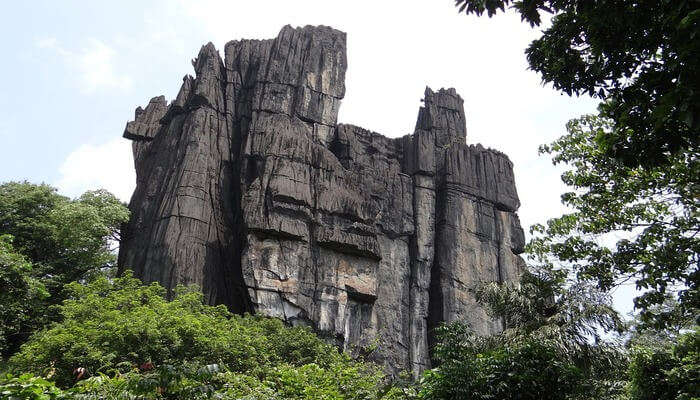Welcome to Dubare, a place where ancient traditions meet the majestic elephants. In this article, we will take you on a virtual journey to explore the daily life of an elephant mahout, providing a glimpse into the remarkable bond between man and beast.
The Role of an Elephant Mahout
At Dubare, an elephant camp nestled in the beautiful Coorg region of India, mahouts play a vital role in the care and management of elephants. Mahouts are highly skilled individuals entrusted with the responsibility of guiding, training, and maintaining the well-being of these magnificent creatures. Their expertise is passed down through generations, and they possess an intimate knowledge of elephant behavior, health, and communication.
Early Morning Routine
The day for an elephant mahout at Dubare begins with the first rays of the sun. Rising early, they head towards the riverbank where the elephants are brought for their morning bath. This routine not only serves as a refreshing start for the elephants but also provides an opportunity for mahouts to inspect their overall health and well-being. They closely observe any signs of illness or injury and report it to the camp veterinarians for necessary attention.
Feeding and Health Care
After the bath, mahouts guide the elephants to their feeding area. A well-balanced diet is crucial for their health, and mahouts ensure that elephants receive the right quantity of food comprising a variety of grasses, leaves, fruits, and specially formulated supplements. The elephants are closely monitored during feeding to ensure they consume an appropriate amount.
Mahouts also participate in routine health check-ups, which include examining the elephants’ skin, eyes, teeth, and overall body condition. They provide care and treatment when required, working alongside veterinarians to maintain the well-being of the elephants.
Must read The Fascinating History of Dubare Elephant Camp: Exploring its Heritage and Conservation Efforts
Training and Enrichment Activities
A significant part of a mahout’s responsibility involves training the elephants and facilitating enrichment activities. Mahouts use positive reinforcement techniques to teach the elephants various commands, ensuring they understand and respond appropriately. This training helps elephants build trust with their mahouts and enhances their ability to participate in various activities, such as carrying logs, interacting with visitors, and participating in ceremonies.
To provide mental stimulation and prevent boredom, mahouts engage the elephants in enrichment activities. These activities include puzzle feeders, sensory games, and social interaction with other elephants, all of which contribute to the overall well-being of the animals.
Interactions with Visitors
At Dubare, visitors have the unique opportunity to interact with elephants under the guidance of mahouts. Mahouts share their vast knowledge about elephants, their behaviors, and the importance of conservation efforts. They facilitate activities like elephant rides and river baths, ensuring the safety of both elephants and visitors.
Mahouts also play a crucial role in educating visitors about responsible tourism and the conservation efforts being undertaken at Dubare. They emphasize the importance of ethical elephant tourism, encouraging visitors to appreciate and respect these gentle giants while preserving their natural habitats.
Afternoon Activities
In the afternoon, the elephant mahouts engage in various activities to keep the elephants active and stimulated. One of the significant responsibilities is taking the elephants for walks in the nearby forests. These walks allow the elephants to exercise, explore their natural surroundings, and forage for fresh vegetation. Mahouts carefully accompany the elephants, ensuring their safety and well-being throughout the walk.
Additionally, mahouts participate in grooming sessions, where they clean the elephants’ ears, eyes, and other body parts. Grooming not only helps maintain the elephants’ hygiene but also strengthens the bond between the elephants and their mahouts.
Also read River Rafting at Dubare Elephant Camp
Evening Rest and Care
As the sun begins to set, the elephant mahouts guide the elephants back to their resting areas. These areas provide a comfortable space for the elephants to relax, unwind, and rest for the night. Mahouts ensure the bedding is clean, soft, and free from any debris that may cause discomfort to the elephants.
During this time, mahouts also perform routine checks to monitor the elephants’ overall well-being. They inspect their skin for any signs of irritation or infection and ensure that they are in a calm and relaxed state. Any abnormalities are promptly reported to the camp veterinarians for further examination and treatment if necessary.
Mahout-Elephant Bond
The relationship between a mahout and an elephant is built on trust, respect, and mutual understanding. Mahouts spend years cultivating a deep connection with the elephants under their care. Through gentle and patient interactions, they develop an unspoken language and bond that allows them to communicate effectively.
Mahouts become attuned to the subtlest cues of an elephant’s mood, ensuring they can anticipate and address any discomfort or distress. This bond plays a crucial role in the overall well-being of the elephants and contributes to their emotional and mental enrichment.
You may also like 6 Must Do Activities At Dubare Elephant Camp
Conservation Efforts
At Dubare, elephant mahouts actively participate in conservation efforts. They educate visitors about the importance of elephant conservation, the threats faced by these magnificent creatures, and the need to protect their natural habitats. Mahouts raise awareness about the significance of responsible tourism and encourage visitors to support ethical practices that prioritize the well-being of elephants.
Furthermore, mahouts collaborate with wildlife organizations and local communities to promote conservation initiatives. They engage in research programs, assist in anti-poaching activities, and contribute to habitat restoration efforts. Through their dedication and involvement, mahouts play a crucial role in safeguarding the future of elephants and the ecosystems they inhabit.
Recommended Read Dubare Elephant Camp Timings, Entry Ticket Cost, Elephant Interactions – Complete Guide
Exploring the Flora and Fauna of Dubare Elephant Camp
A day in the life of an elephant mahout at Dubare is not merely a routine but a profound connection between man and elephant. With unwavering dedication and immense knowledge, mahouts ensure the well-being, enrichment, and conservation of these gentle giants.
As you reflect on this virtual journey, we hope you have gained a deeper understanding of the invaluable role played by mahouts at Dubare. Their commitment to preserving the majestic elephants and sharing their wisdom with visitors is a testament to the harmonious relationship between humans and animals.















Leave a Reply
View Comments